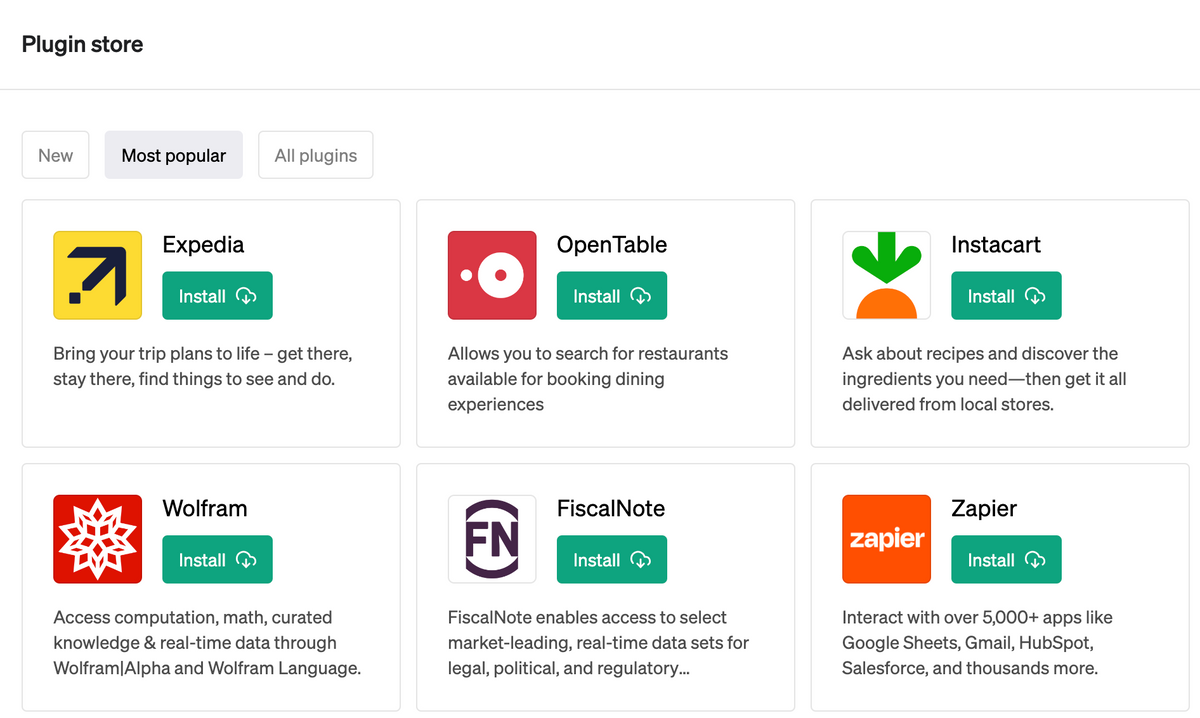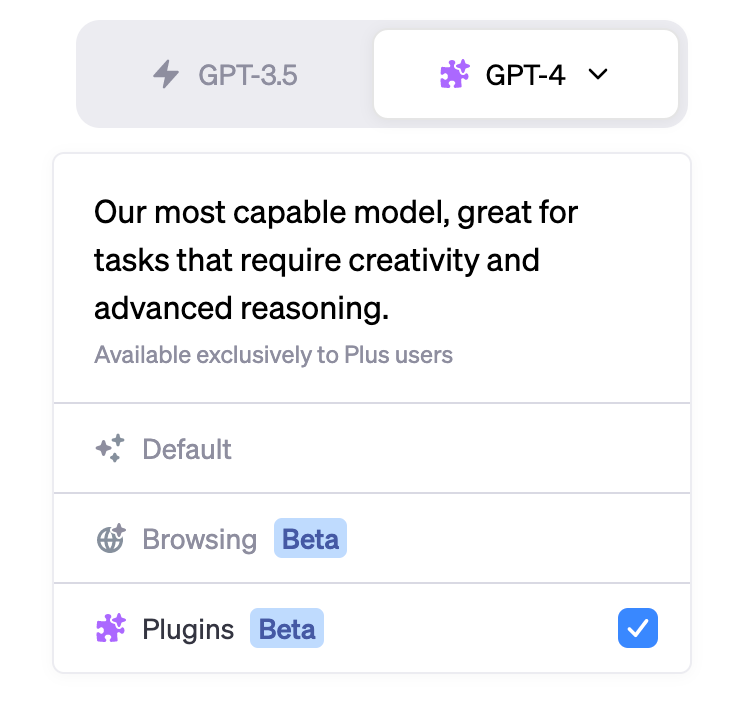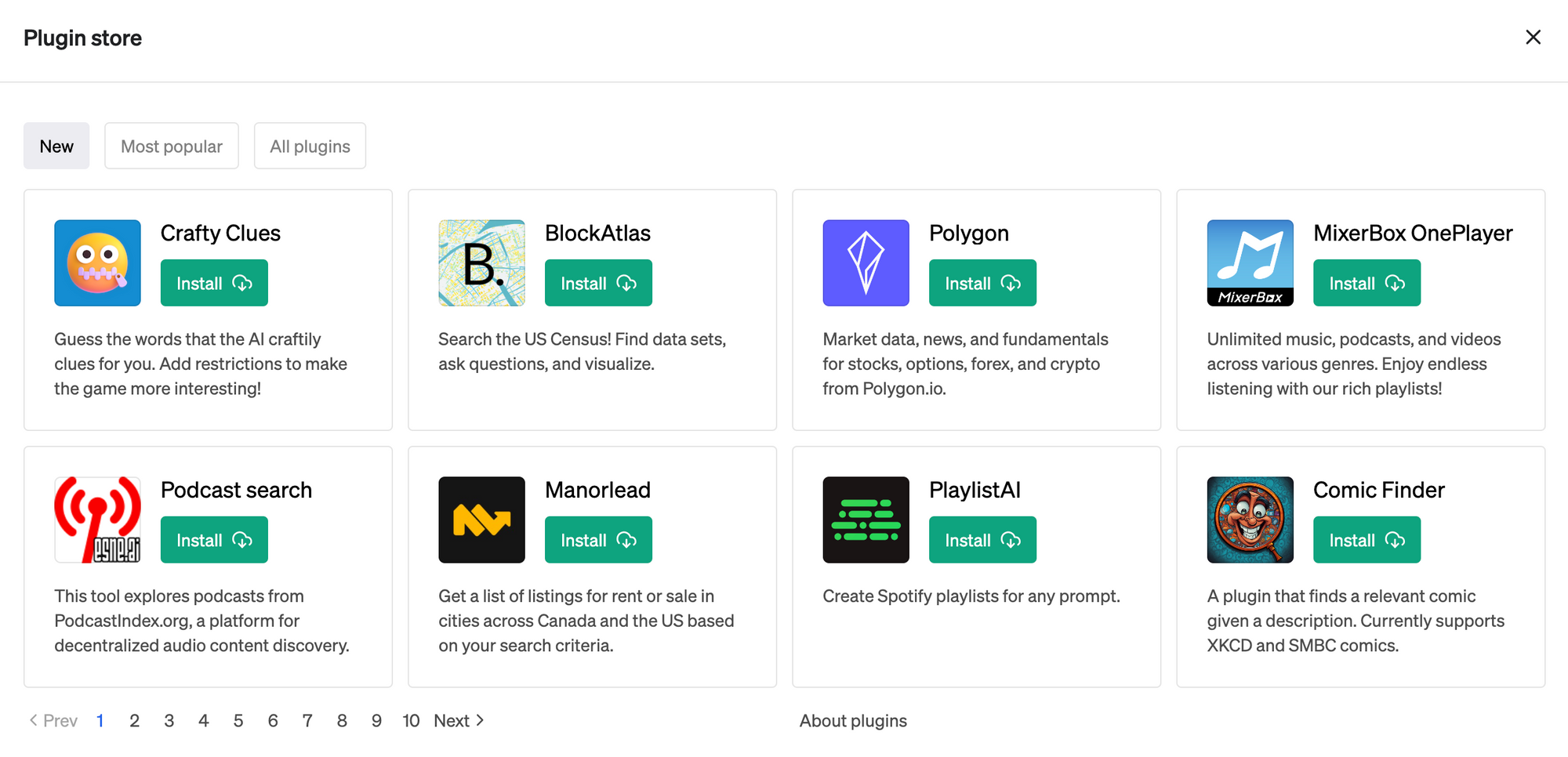The Dawn of ChatGPT Plugins: Advancing Conversational AI with Instacart, Kayak and More

As ChatGPT, one of the fastest growing applications of all time, continues to shape the tech landscape, it is also causing many tech companies to rethink their business models. Until recently, ChatGPT was primarily drawing knowledge from its internal servers. The game changer? Plugins.
Plugins allow third parties like Instacart and Kayak to integrate with ChatGPT, contributing information directly from their companies. Think of it as the ChatGPT equivalent of an app store or a Chrome browser extension. Originally announced in March, ChatGPT's plugins will be accessible to all ChatGPT Plus subscribers (at $20/month) from May 19.
"Plugins are a simple way for companies to infuse business-specific context into ChatGPT's possible actions," explains Daniel Galati, a software developer and the owner of BeABetterDev. "The potential use cases unlocked by this feature are virtually limitless."

So, what are ChatGPT plugins, and how do they function?
Essentially, a ChatGPT plugin can be developed by a corporation, an individual with engineering skills, or OpenAI. These plugins enhance ChatGPT's abilities by providing it with access to the internet for up-to-date information, or by helping users perform complex calculations in Python.
Third-party plugins, like those created by Kayak or Instacart, connect ChatGPT to external companies, offering users the ability to plan trips or shop for groceries, respectively. This gives users the convenience of using familiar applications without leaving the ChatGPT environment.
However, the introduction of plugins has also raised concerns. They concentrate more power, money, and influence into the hands of OpenAI by encouraging users to interact with ChatGPT instead of standalone sites and businesses. Companies may start developing similar services to avoid being dependent on ChatGPT plugins. Notable companies like Instacart and Expedia are already working on their own AI assistants, using ChatGPT's underlying GPT-4 technology while keeping users within their own business' sites.
That said, for smaller companies, plugins can be a game changer. They provide an avenue for businesses lacking the resources to develop their own AI tools to connect with users through AI technology.
Despite their benefits, there are limits to what plugins can achieve. For instance, they can't process payment information or finalize orders. Users still have to complete these processes on the respective businesses' websites. Furthermore, ChatGPT is currently limited to a desktop experience. Also, users can install numerous plugins but can only utilize three at a time.

Currently, over 70 third-party plugins are available, catering to a variety of industries including shopping, real estate, stocks, travel, and food. Among them are plugins from:
- Expedia
- FiscalNote
- Instacart
- Kayak
- Klarna
- Milo
- OpenTable
- Shopify
- Slack
- Speak
- Wolfram
- Zapier
Others, like AskYourPDF and ChatWithPDF, are designed to boost productivity in the workplace.
OpenAI has set up its infrastructure in such a way that anyone with the necessary skills can create a plugin. The OpenAI Discord channel has a dedicated "Plugin Showcase" section where creators can display their new inventions. For example, one plugin called TextbookGPT helps visualize academic diagrams, and another called Shifu connects ChatGPT to IoT devices, taking AI-human interactions to a new level.





